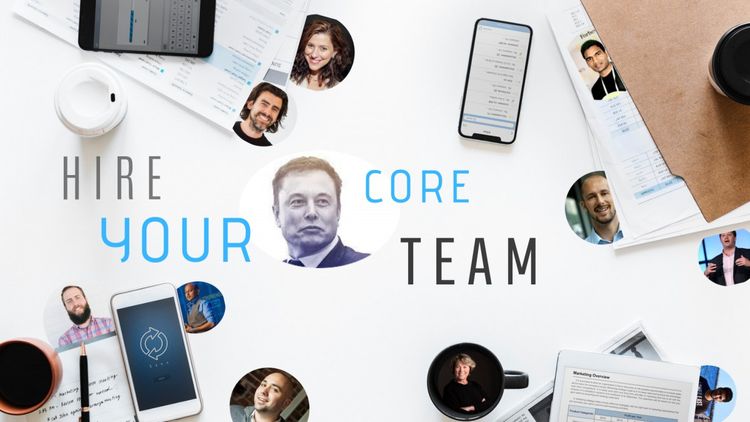Why diversity and inclusivity are must haves for your organisational success?

We as human beings have an innate desire and need to belong and that desire extends to most parts of our lives. Diversity and inclusivity are important in this respect. When you start to work and build something in your professional life, you always want to belong to a community and this belonging comes from seeing yourself and your ideas represented in others of the organisation. Now consider this statistic- Google, one the biggest names in the tech world today had only 30% of their workforce as women. This percentage drops even below to 18% when one considers tech related leadership positions. This made Google take a new approach and declare a holistic diversity program to make the organisation more inclusive and diverse.
"Google initiated composite steps as an approach to tackle this issue.These efforts were like a new language that enabled people inside and even the ones outside hoping to be a part of it, to understand diversity and inclusivity. Fortune magazine reported that a 73% of Googlers have already taken part in anti-bias training and hiring, and promoting practices, say many employees, have been transformed. "Increasingly, recruiters are willing to look beyond a sliver of particular majors at a handful of elite colleges when identifying job candidates." -Ellen McGrit
Why is this so important you might ask?
Success stories for organisations are built on the dynamic leadership and inclusivity that the organisation has to offer. And this goes all the way to not just having a vision for inclusive culture, but also implementing it.This is what we at Invide Labs hold core to our organisational setup. We believe that no matter where you come from; if you have what it takes then you always should have the opportunity to make it big, irrespective of your background.
Imagine you decide to go on a vacation. You make all the plans, book the tickets and pack up but then when it is actually time to go, you decide not to go, you drop out and instead sit at home. That is exactly what visioning and not implementing inclusivity is like. So, this piece is basically to help young leaders understand and navigate the waters of a work culture that promotes inclusivity and diversity.
Having an inclusive work culture not only encourages employees to give their best but it also shows in the outward framework which in turn makes customer interaction better and more fruitful. So, if it is so helpful in developing and writing the proof success for the organisation then why isn’t it implemented more?
A lot of leaders envision environments where employers give their best, but when actually building the company culture they knowingly or unknowingly let go of it. A lot of time and money is spent on consultants, assessments and strategic planning meetings but employee recommendations are overlooked as not important or just useless babbling. This in the long run is what goes on to hurt the organisation.
One way to avoid this is to listen to the employees and use their valuable insight in order to create synergy between leadership qualities, employees’ concern and customer fulfilment.
Picture this, you are working with your boss over a project that you both hold very dear to yourself. But you both have other priorities too. And as per deadlines are concerned, you feel choked by them because the leader you look up to is never ready to understand any of your other commitments. Neither is he ready to listen to any constructive criticism. So, instead of being honest, you start to make excuses; slowly and steadily the passion that you had for the project burns out. What you get as an end result is a half baked product, an unhappy client, a definitely confused and irritated senior and dissatisfied you. Would you like to work for an organisation like that? On the flipside if you are a leader, would you want your employees to look up to you with aversion?
The change towards this kind of culture has to come forth as an effort from everybody. And a leader should be willing to implement it. A dynamic team with a close-minded leadership will benefit no one. Culture after all is something that honestly portrays the core values of the company. It cannot be forced from outside. It has to come from within. We talk so much about Google having a truly dynamic culture or for that matter, Facebook being a culturally cool office to work at. These are not superimposed images of what the organisations are. They spring up from within the working force inside these places.
Putting an inclusive culture in place does not only mean going for diversity irrespective of the person’s gender, class or caste. It goes beyond that. We understand that fact of building a diverse work culture at Invidelabs. Our members hail from different backgrounds; what drives them is the desire to make a mark and bring about change in the world dynamics.
In the same way, it’s about getting people who have myriad viewpoints and perspectives on-board; people who hail from different societal settings. This works to give the organisation a fresh outlook and perspective. Diversity and inclusivity hence should be core values of an organisational structure.
But this is easier said than done. An organization has to continually strive to be inclusive. It is not a task that gets completed in a day or so. It is indeed a journey that has to be completed as a team together
So, what are the possible steps that can be taken for making the organisation better with inclusivity and diversity?*
-
One of the first steps towards achieving that is being clear about your company’s goals and vision. Remind yourself of them every now and then and always be open to revaluate them. When you do this and create a culture around inclusivity and diversity you show your employees and customers alike that you are committed to your vision and business values. And never forget to be open to listening to your employees. They are as invested in the organisation as you are, so take their advice. Take in both their praise and critique of you. This is the only way you'll grow along with your team.
-
Another very important thing to aim for when building an inclusive team is proactive and inclusive recruitment effort. Are you hiring the right minded people? As an employer you should be sure to make your new employees know how important these core values are for the overall growth of the company. Just going through the first fold of hiring process isn’t enough. Engage, attract and hold on to the right people to herald diversity into your business.
It takes a long time for Invide Labs to select and retain our emloyees. But the selection process is worth it. This might seem like a time consuming and long process, but in the long run this is going to pay you back more than hiring the wrong people and then having to let go off them because they ultimately fell short of the company’s vision. Proactive outreach is a good strategy for this.
- Keep your subconscious biases in check. Most of us don’t realise that although we might think we are pretty open-minded in our thoughts, we might harbour subconscious bias. This subconscious bias might act towards the lack of diversity in the workplace. This does not mean that you are intentionally making your biases work out, but as human beings, we, fall prey to our subconscious biases more than we think we do.
Picture this...you say you are on the side of equal opportunity, but somewhere down the line you still hold on to an unconscious bias against people who struggle with their English. It's something almost all of us are guilty about, whether we realise it or not. You don't even do it knowingly But it ends up colouring your decision of hiring people who are better techies as against those who are mediocre but can make their achievements seem like great with the way they use English. This might make you lose out on some great potential talents just because they are not as great at a second language. Hence, it is important to be self-aware. And not let such unconscious biases from impacting your organisational vision negatively.
Finally, creating a truly inclusive and diverse business culture is more than just an organisational goal. It should be pursued by young entrepreneurs and leaders as a moral imperative. Equal opportunity should be provided to people irrespective of where they stay what place they belong to or come from, caste, creed, colour, gender or any such social marker. To make this a reality, we need leadership that takes this as a serious task at hand and push for change and inspire others to do the same.
We at Invide Labs hold this very close to our heart. As our Founder himself comes from very humble origins from a non-metropolitan place in Rajasthan. It is this belief structure that makes us want to reach towards people who have similar goals and competencies, irrespective of their place of origin.



Member discussion